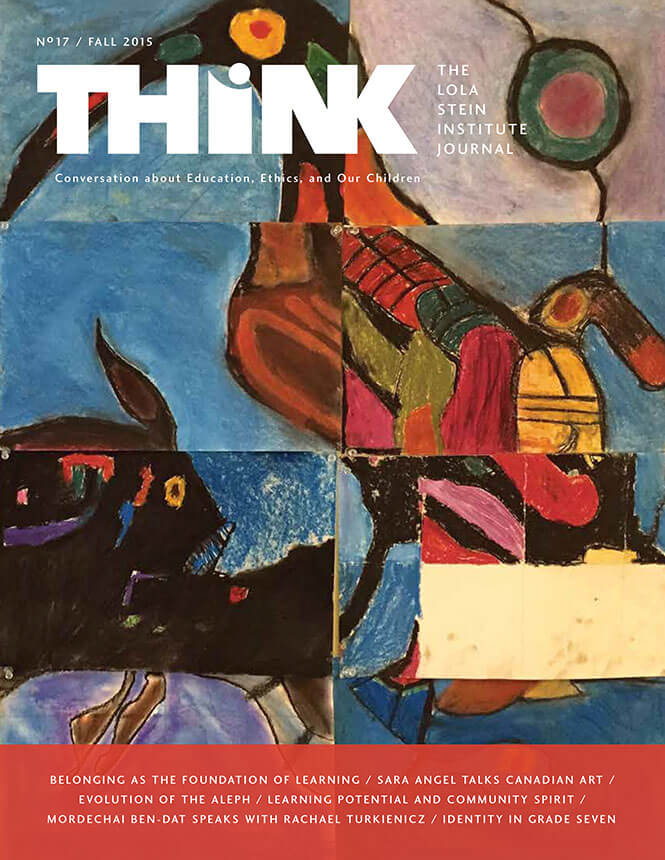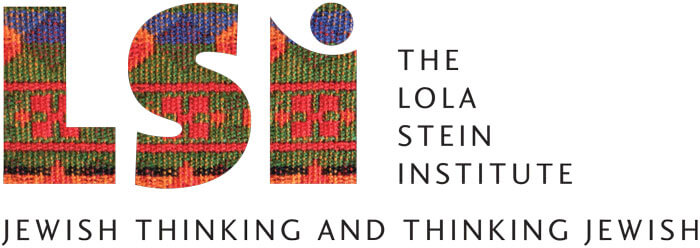- How We Teach

- First Column
- Second Column
- Third Column
- Case Studies

- First Column
- Second Column
- Culture & Community

- First Column
- Second Column
- News & Views

- Admissions

- First Column
- Second Column
- Support Us

- About

- First Column
- Second Column
- Parent Hub
- Attend an Open House
- Take a Tour
- Donate Now
- Calendar
- Blog
- 416-635-1876
- Search
We Know Who We Are
An Alumna Speaks to Junior High Graduates, June 2015by
Studying Western philosophy in first year university, I read the works of over 50 thinkers. The one that stuck with me the most was Hannah Arendt. For me, her philosophy resonated deeply because it connected me back to my roots at Toronto Heschel.
Arendt’s work, Vita Activa, looks at the distinctions between individuals. She demonstrates that every one of us is irreplaceable, and that simply because we are in it, the world will never be the same. Arendt emphasizes individuality and uniqueness because she understands that society forces us to conform and become carbon copies of each other.
This reminds me of the most important lesson I learned at The Toronto Heschel School. The lesson was to not only accept but also to embrace my personal uniqueness, and to make my uniqueness the chief inspiration for my creativity. Toronto Heschel provides an environment where individuality can grow and thrive.
Embracing uniqueness, especially at the age of 13 or 14, is not an easy task. Learning to affirm differences, and not to hide them, is not a culture that every school encourages. Our ability to acknowledge how we differ from others and to be confident in that individuality are lessons that stretch beyond the confines of a classroom, even though the roots are in our JK classes.
The school encourages and provides a space for creativity, the exact opposite of forcing kids to conform to a specific mould. At Heschel, there is never a class full of the same essays simply because we received the same instructions; what emerges are diverse artistic depictions of the Babylonian Exile and amazingly different themes for speeches on human rights.
Arendt writes of the merit in individual thought and action, and she hopes to dissuade people from wanting to be the same. In any social situation, it is tempting to try to blend into the crowd and do what others are doing, yet the best advice that I can give this year’s graduating class on how to survive high school is actually to embrace uniqueness. If you remember to understand yourselves in the way that Heschel taught us, and think of yourself as a unique individual, you will be a step removed from the pressures of the crowd and the hustle and bustle of high school.
High school is testing, but owning the skills to affirm yourself in all your individuality will get you through the test. It’s a challenge to switch from a class where you know everyone to a class where you know few to none. When you remember yourself as the creative individual you are, with so much to offer, you will spend less time worrying about the latest trend or what exactly is cool.
Arendt says that the highest category of human activity is acting as an individual; when we take action, the world will never again be as if we weren’t here. Arendt’s reasoning for individual action again connects directly to what we learned at Toronto Heschel. We were taught that we could make a real difference in the world; we can repair its problems. Tikkun Olam, and, following the ethical path, Derech Eretz, we can make the world a better place than it was before us.
What I am suggesting to you, graduates of 2015, is to hold on to the identities that you cultured at The Toronto Heschel School. Remember that you are an individual, unique and irreplaceable, and precisely because of that, the world is a better place. There will never be anyone else who can change the world in the way that you will. We each know all about creative individuality; we know who our true and beautifully different self is.
Hayley Zacks graduated from The Toronto Heschel School in 2010. She attended Northern Secondary School and then entered the Foundation Year Programme at the University of King’s College in Halifax.
NEXT ARTICLE
Evolution of the AlephSpecial Feature
Our Sages Tell Us
An Alumna Speaks to Junior High Graduates, June 2015We Know Who We AreColumns
Perspectives
 The Lola Stein Institute (LSI) is a centre of inventive educational thinking and addresses the challenge to re-frame schooling for the exigencies of our times.
The Lola Stein Institute (LSI) is a centre of inventive educational thinking and addresses the challenge to re-frame schooling for the exigencies of our times.









